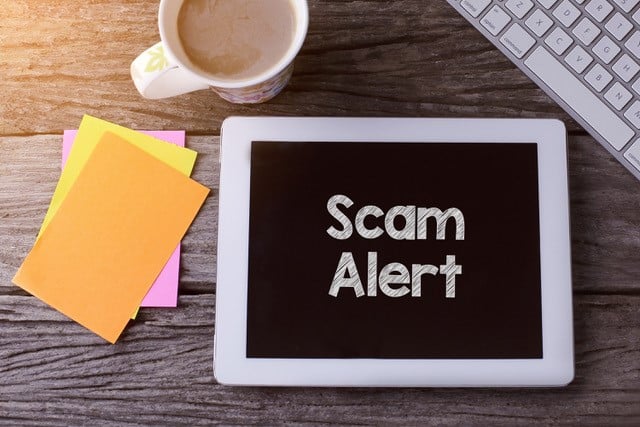Tax season is a prime time for fraudsters. Taxes are often mystifying, leaving people with questions about their tax returns. And because the IRS does not carry a perfect reputation with Americans, many are left on edge about receiving IRS communications. These conditions create the perfect storm for fraudsters, as confusion and fear are the most successful tactics used to steal your money and personal information. Understanding what a tax scam is and what it looks like is crucial in keeping you, your money, and your personal information safe.
What Are Tax Scams?
Tax scams are attempts by fraudsters to impersonate the IRS or other government representatives to steal your personal information and money or to file fraudulent tax returns under your name. A tax scam can happen through multiple channels, including phone calls, text messages, emails, and social media DMs. Fraudsters may also impersonate official IRS representatives or tax preparers in person.
How to Identify Tax Scams
Knowing how to recognize tax scams could prevent you from falling victim to one. While many fraudsters are top-notch tricksters, there are recognizable patterns in most tax scams.
Receive Communication from Channel Other Than Mail
Receiving digital communications about a tax return is a telling sign of a tax scam. The IRS prefers to communicate with you through physical mail. Fraudsters will often communicate with you through email, text, or even social media.
The IRS does not initiate contact on these channels to request personal or financial information. So, if you receive an IRS email, text, or social media message from someone claiming to be an IRS representative, do not click any links or provide your personal information. Instead, report the incident to the government.
But will the IRS call you? Phone is another channel that fraudsters use. A typical IRS scam call generally involves fraudsters claiming you owe taxes from a previous year. You could be told that your payment was not received and that you have an outstanding tax balance that needs to be paid. Remember, the main communication channel for the IRS is physical mail. If you did not receive a letter about an outstanding tax balance, be very cautious if you receive phone calls from someone saying they are with the IRS.
Feel Urgency with Threats
The more pressure fraudsters put on you, the more likely you are to comply with what they’re asking. That’s why IRS scammers often threaten to arrest or deport their victims to create a sense of urgency. But the IRS will never “threaten to immediately bring in local police or other law enforcement groups to have the taxpayer arrested for not paying.”
Another way fraudsters create a sense of urgency is by pressuring you to pay immediately. The IRS will give you time to appeal the amount owed. If faced with these urgent requests by fraudsters, remember that you can always stop talking to the fraudster, take a breath, and ask yourself if this situation makes sense.
Demanding Payment in Gift Cards or Cryptocurrency
The IRS does not accept gift cards or cryptocurrency as payment. Anyone asking for such payment is a tax scammer.
How to Identify a Legitimate IRS Representative
Knowing how to identify a genuine IRS representative is essential to avoiding scams and falling victim to tax fraud. The IRS may call or visit you in person if you have had several years of unpaid taxes and haven’t responded to any letters. If this does not apply to you, be wary of phone calls and visits from “IRS representatives.”
If a representative visits you, be sure to ask for their identification. A legitimate IRS representative will have two forms of identification, a Pocket Commission and an HSPD-12 card. Both cards should be of high quality and have a photo of the representative. A genuine IRS representative will be glad to show their identification.
While the initial visit from an IRS representative will most likely be unannounced, taxpayers will likely be aware that they have tax issues that need to be addressed. For more ways to identify a legitimate IRS representative, visit Tax Payer Advocate.
How to Report Tax Fraud
Fraudsters are convincing and have numerous ways to steal your information. If you experienced a tax scam, follow the FTC’s steps on what to do if you were scammed based on your scenario.
For more resources on tax scams, we highly recommend visiting Tax Scams/Consumer Alerts from the IRS. And remember, if you feel you may have given out your Centris account information to a fraudster, contact us at (402) 334-7000. Even if there aren’t any fraudulent transactions, we can still take action to help keep you and your accounts safe.





